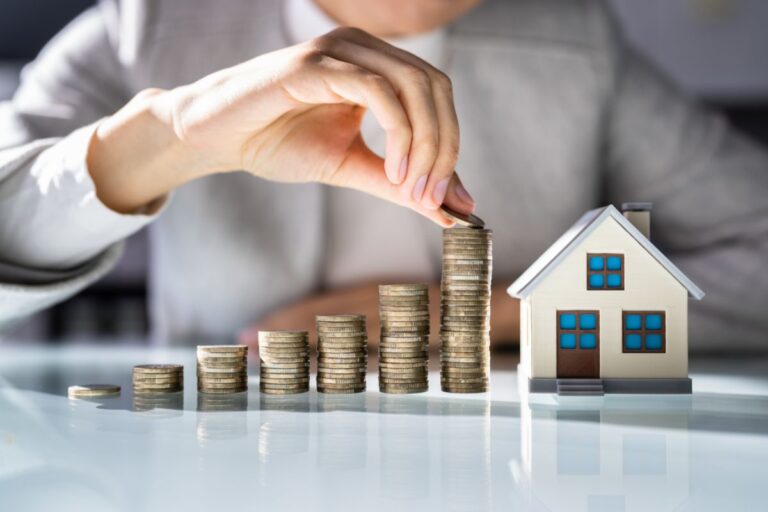The Middle East stands at the forefront of global real estate transformation. From futuristic smart cities rising in the desert to booming residential and commercial markets, the region is rewriting the rules of investment. Government-backed megaprojects, a surge in tourism, and the rise of sustainable development are drawing international investors eager to capture opportunities in this dynamic market.
The next decade promises to be a golden era for real estate investment in the Middle East, driven by economic diversification, technology, and changing lifestyles.
Visionary Projects Reshaping the Market
One of the strongest drivers of real estate growth in the Middle East is the proliferation of government-led megaprojects. Countries like Saudi Arabia, the UAE, and Qatar are leading the charge with bold initiatives that attract global attention.
- Saudi Arabia’s NEOM: A $500 billion smart city project blending artificial intelligence, renewable energy, and futuristic urban living.
- Dubai’s Smart City Vision: Continuing its evolution into a hub for innovation and luxury real estate, Dubai is setting global benchmarks for technology-driven property markets.
- Qatar Post-World Cup Expansion: Leveraging its modern infrastructure and global visibility to expand real estate across residential and hospitality sectors.
These projects are more than just construction; they symbolise a long-term strategy to diversify economies away from oil dependency.
Also read: DIY Face Masks with Kitchen Ingredients That Actually Work
Technology and Smart Real Estate
The future of real estate in the Middle East is digital, with proptech innovations redefining the investment landscape. Artificial intelligence, blockchain, and digital twins are reshaping how properties are built, sold, and managed.
- Blockchain in Real Estate: Ensuring secure, transparent property transactions.
- AI-Powered Market Analysis: Helping investors identify trends and predict returns.
- Smart Homes and Cities: Meeting the demand of a younger, tech-savvy population.
This digital shift not only attracts international capital but also reduces barriers to entry for smaller investors seeking fractional ownership through blockchain platforms.
The Rise of Sustainable Investments
Sustainability has become a central theme in Middle Eastern real estate. Governments and developers are integrating green building standards, renewable energy solutions, and eco-friendly infrastructure into projects.
- LEED-certified skyscrapers are becoming the new standard.
- Carbon-neutral developments like Masdar City in Abu Dhabi showcase regional leadership in eco-conscious design.
- Solar-powered residential communities highlight the potential of renewable energy in housing.
Investors are increasingly favouring projects that align with ESG (Environmental, Social, and Governance) principles, as demand for sustainable living spaces continues to grow.
Residential Market Outlook
The demand for residential real estate in the Middle East is expanding rapidly, driven by population growth, urbanization, and an influx of expatriates. Luxury housing continues to dominate markets like Dubai and Riyadh, while affordable housing solutions are gaining traction to serve middle-income residents.
- Luxury Villas and Waterfront Properties: Attracting high-net-worth individuals from across the globe.
- Affordable Housing Programs: Supported by governments to enhance homeownership rates.
- Serviced Apartments: Catering to professionals and digital nomads choosing the region as a base.
As demographics shift, developers are diversifying portfolios to balance luxury demand with affordability.
Commercial and Hospitality Real Estate
The Middle East remains a global magnet for commercial and hospitality real estate investment. Economic diversification strategies such as Saudi Arabia’s Vision 2030 and Dubai’s post-pandemic rebound are fueling demand for office spaces, retail hubs, and luxury hotels.
- Hospitality Growth: The region is becoming a global tourism hub, with Saudi Arabia and the UAE targeting millions of new visitors annually.
- Office Spaces: Hybrid work models are influencing the demand for flexible and co-working spaces.
- Retail Transformation: From mega malls to e-commerce-driven logistics centers, retail real estate is evolving rapidly.
This diversification creates opportunities for both short-term rental income and long-term capital appreciation.
Challenges in the Investment Landscape
While the future is bright, investors must navigate challenges such as market volatility, geopolitical risks, and regulatory differences across countries.
- Regulatory Frameworks: Varying property ownership rules can be complex for international investors.
- Market Cyclicality: Some markets, particularly luxury segments, may face oversupply.
- Global Economic Conditions: Interest rate changes and global inflation may influence returns.
Investors with strong market knowledge and long-term perspectives will be better positioned to mitigate risks and capture value.
Regional Hotspots for Investors
Different Middle Eastern countries offer distinct advantages for investors:
- United Arab Emirates: Known for freehold ownership, tax-friendly policies, and global connectivity.
- Saudi Arabia: High-growth market with ambitious projects like NEOM and The Red Sea Project.
- Qatar: Strong hospitality sector and post-World Cup momentum.
- Oman and Bahrain: Emerging destinations with investor-friendly regulations and growing residential demand.
Diversifying across these markets can reduce risk while capturing region-wide growth.
Future Investment Trends
The next decade will bring transformative trends shaping Middle Eastern real estate:
- Fractional Ownership Models powered by blockchain, making luxury assets accessible.
- Wellness Real Estate with properties designed around health and well-being.
- Mixed-Use Developments combining residential, retail, office, and leisure spaces in one hub.
- Global Investor Influx as the region cements its status as a safe, lucrative investment destination.
These trends signal a future where real estate is not just about buildings but about creating holistic lifestyle ecosystems.
Also read: Digital Detox: Discover Why Unplugging is Essential for Modern Life
Conclusion: A Golden Horizon
The Middle East is positioning itself as a global real estate powerhouse. With a blend of visionary megaprojects, cutting-edge technology, sustainability initiatives, and investor-friendly regulations, the region offers unprecedented opportunities for both local and global stakeholders.
The future of real estate investment in the Middle East is not just about financial growth—it is about shaping cities of tomorrow, building sustainable communities, and redefining global living standards. Investors who embrace this momentum today will be at the forefront of a new era of prosperity.







